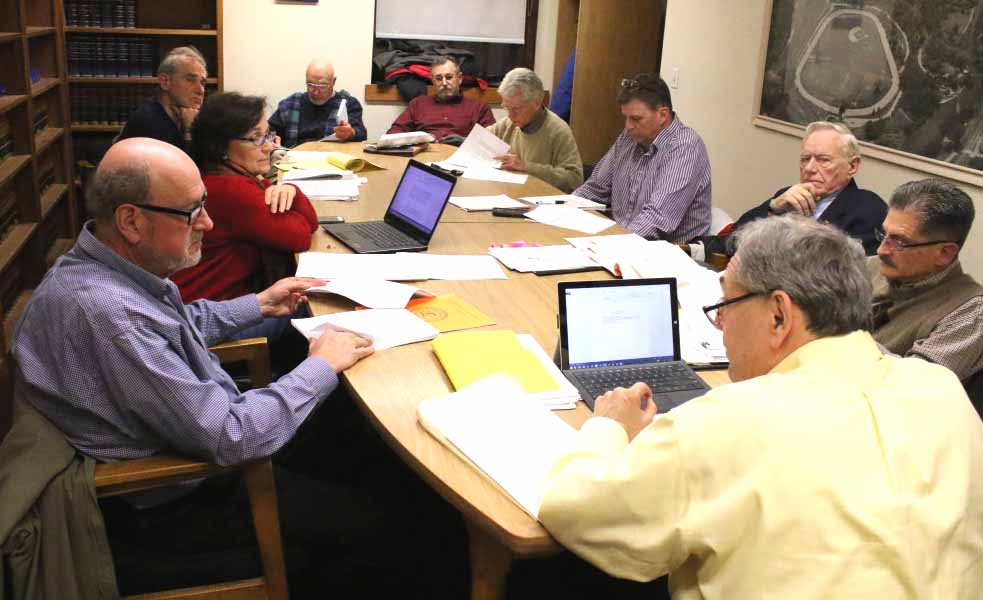Charter Committee Suggests
Shifting Emergency Powers

By LIBBY CUDMORE • for www.AllOTSEGO.com
ONEONTA – As the waters rose around Oneonta during the 2006 floods, Mayor John Nader was constantly on the phone, talking to government officials, worried citizens and businesses affected by the rising river.
“It was crucial to have an elected official to speak to and for the community,” said Nader, who is chairing Mayor Gary Herzig’s ad hoc Charter Review Committee.
The power to call out police and fire in an emergency situation was given to the city manager under the new charter, but at tonight’s meeting the review committee concluded – with some dissension from members of the original Charter Revision Commission – that the power should revert back to the mayor.
For now, the suggestion is just that. When the ad hoc committee’s review is done, Common Council would be able to make minor changes to the charter. However, significant changes would require a public vote, like the one that approved the original charter by 71 percent of voters in 2010.
“During the Market Street fire in 1992, the chief of police called me at 5:10 a.m.,” said former mayor David W. Brenner. “He had gotten the call around 5 and got to the scene, but even then, I thought he called me too late.”
“In the event of an emergency, if it’s not handled appropriately, it’s the mayor who take the hit,” said Nader. “I think it should be in the hands of the elected officials.”
The change would be consistent with a previously proposed change, which placed the mayor as a liaison to state and federal officials, a duty currently given to the city manager. “I had to work with federal agencies during the floods, so this expectation is consistent with the clause,” said Nader.
Paul Scheele and Steve Londner, members of the original Charter Revision Commission that, in 2009-10, studied a charter that had been mostly unchanged since the city’s founding in 2008, said they were told state law gives that authority to the city manager. “When we wrote the charter, we were instructed by Rob McEvoy, executive director of the New York State City/County Management Association, that state law required that the city manager call on the police and fire in an emergency,” said Londner.
However, City Attorney David Merzig said that it is within the city’s power to give the powers back to the mayor. “It’s within the Municipal Home Rule law to make that change,” he said.
“I agree with this change,” said Scheele.
However, Council Member Dave Rissberger, Third Ward, who chaired the original Charter Commission, disagreed. “The city manager is in charge of the department heads, including the police and fire chiefs,” he said. “That’s like switching your captain in the Army just because you’ve declared war. In the case of an emergency, the governor is going to be calling the city manager, and giving this power to the mayor creates conflict.”
Council member Russ Southard, Sixth Ward, said the city manager would still be a crucial person during an emergency. “If something, God forbid, happens, there would be many at the table,” he said.


Also revoke CITY MANAGER concept of government. Back to Mayor/Council